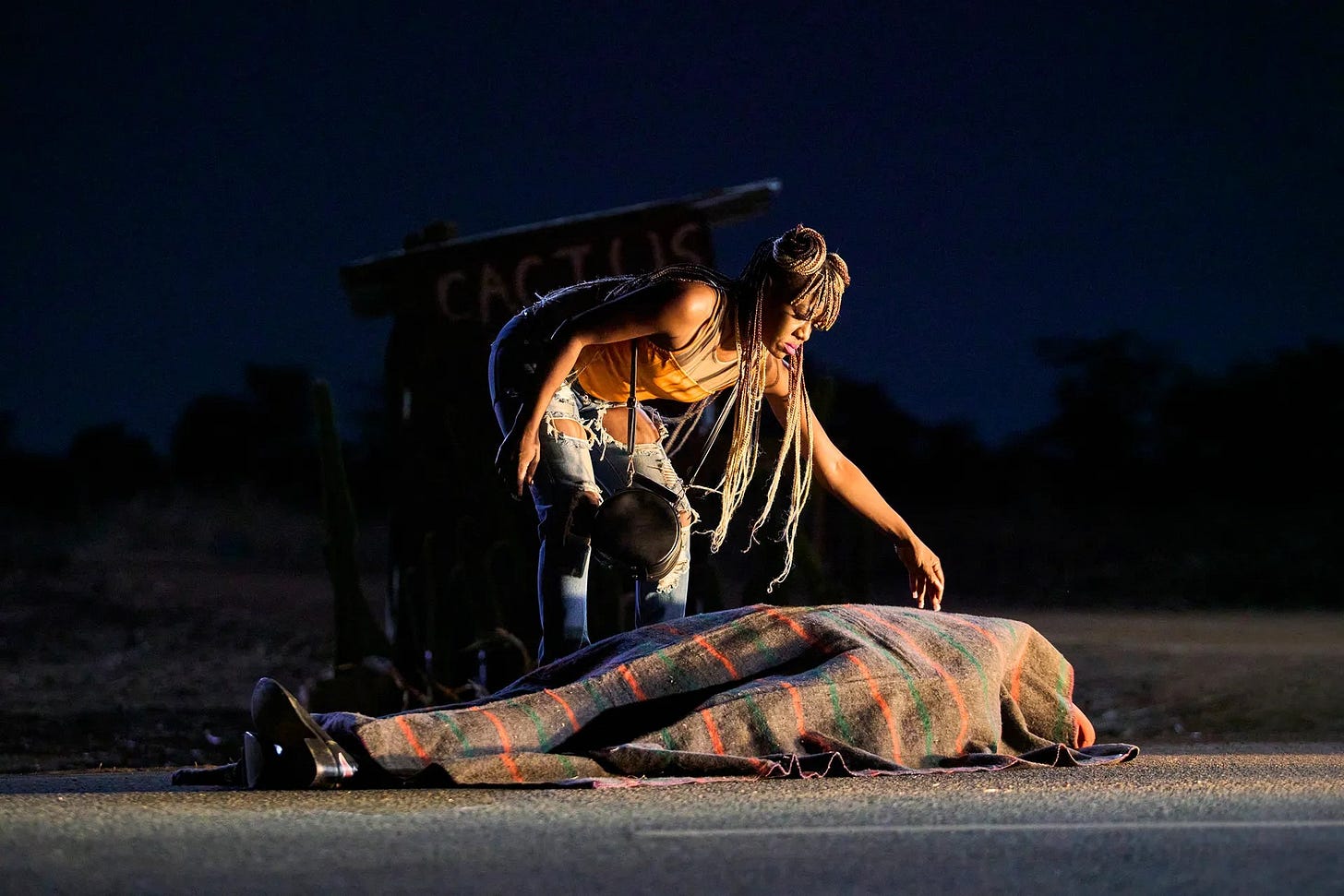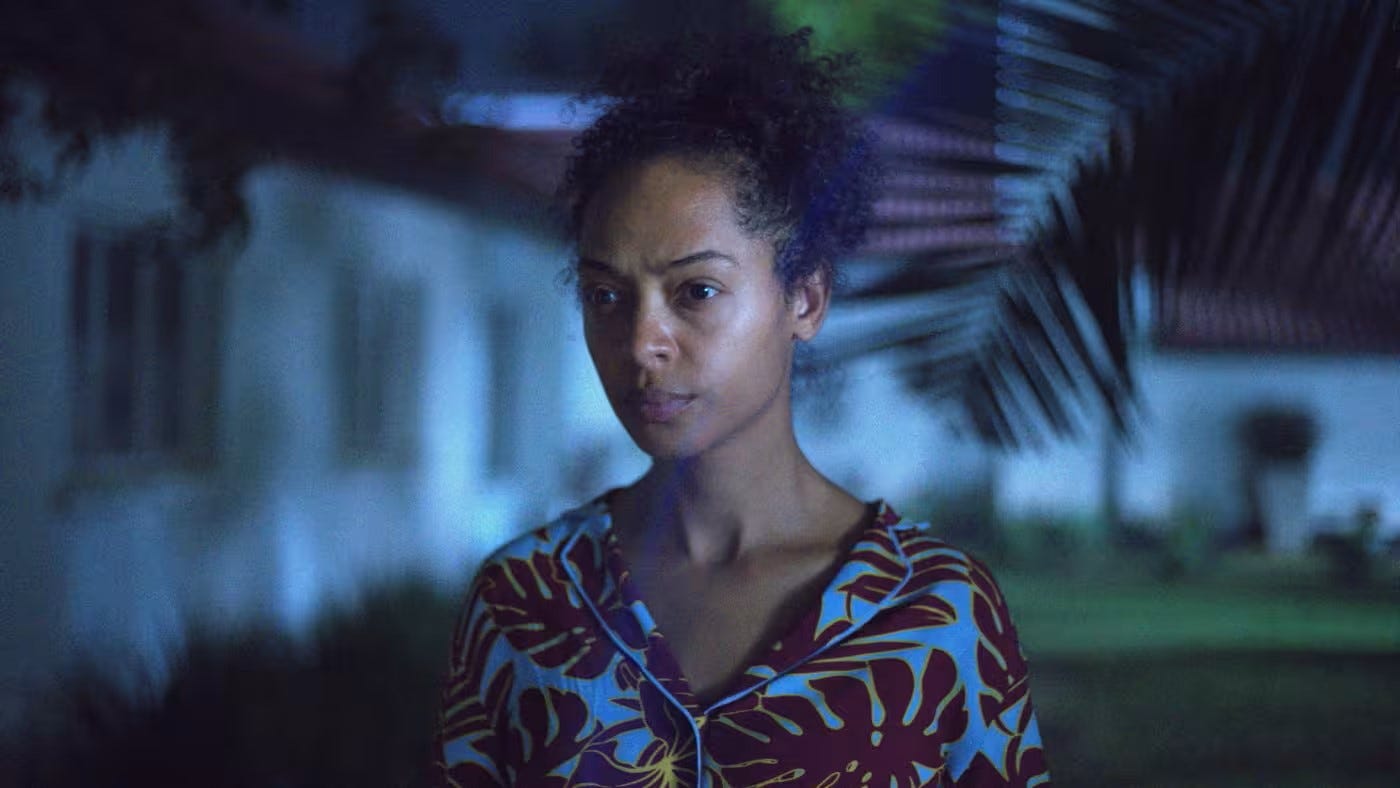008—On Becoming a Guinea Fowl
A reflection on a family's unwillingness to confront the predatory rot at its center
I’m writing from the Detroit airport on my way to South Carolina for my younger brother’s wedding. The last time our immediate family was together was in October of 2023, when my grandma was in the slow process of dying from glioblastoma and suffering in said dying from abuse at the hands of my grandfather.
Now, no one from our nuclear five speaks to him anymore, but the extended family—those who were invested in preserving his feelings over both her well-being and her dying wishes—still do. Such is the case in many families. One person harms another and a liminal space opens in the absence of accountability, justice, and repair. It’s this space that director/writer Rungano Nyoni seems interested in exploring.
Over the course of it’s 99 min runtime, On Becoming a Guinea Fowl trawls through the maddening absurdity of a family unwilling to face the generational patterns of harm that get exposed during a Zambian funeral. The drama sets off, in an incredible opening scene, when Shula (Susan Chardy) who was driving home from a “fancy-dress party” slows her car to a roll after seeing a body lying in the street. The body is none other than her Uncle Fred, and instead of tears or surprise, Shula displays a type of resigned annoyance and boredom that may as well be a ‘i belong to a bad family’ call sign. This grows more apparent after a call with her father and after her drunk cousin Nsansa randomly appears.
From here, funeral tradition begins to play out and Shula wants no part. She tries leaving the family home and going to a hotel only for a gaggle of aunts to drag her back. Tradition is a requirement, even as there’s not enough space in the family home for all guests to sleep, even if the dearly dead turns out to have been not-so-secretly sexually abusing his nieces as well as his child bride, even if it makes you suicidal to cook the funeral chicken for the man who repeatedly assaulted you.
David Gallego’s cinematography throughout is really sharp, and there are a few scenes that stood out to me. The first was after Shula learns that her younger cousin Bupe had been repeatedly sexually assaulted by their Uncle Fred. As she goes about funeral tasks for the day, Bupe’s words replay again and again in the background and it’s clear that this disclosure has undone, or perhaps resurfaced, something for Shula. The second scene is set in a brutalist library during a phone call between Shula and her father. Shula’s lower half is all that’s visible. The camera peers down at Shula from a higher level in the library and blocking of her cutoff body creates a wonderful visual tension belying the very words she’s saying.
As secrets start to spill over, flashbacks of Shula as a young girl watching a television program about Guinea Fowl start to appear. Guinea Fowl are birds, that seem to be a cross between chicken and turkey and can be used for meat or to deter predators with a loud call. But what is one to do, when the family is the predator? If familial unity relies on keeping abuse a secret, what unity can there be? When Shula tries to address the situation with her father, he remarks, “It’s in the past now…do you want them to dig up the corpse and confront it?”
In some instances death’s hand can put an end to what no one else seems able to do, but it is a mistake to consider everything else buried with the body. Until the web of belief enabling harm is confronted and untangled, the damage will continue to ripple out and up. If things become more absurd and surreal in the interim? Well, sometimes that’s the path you have to walk until you can come on home.
The Lijadu Sisters ‘Come on Home’ is the song Shula is listening to in the movie’s opening scene.
A movie this seems to be in conversation with or vice versa: Women Talking and not a movie but the some of the absurdity/surrealism of the third season of Donald Glover’s Atlanta.





